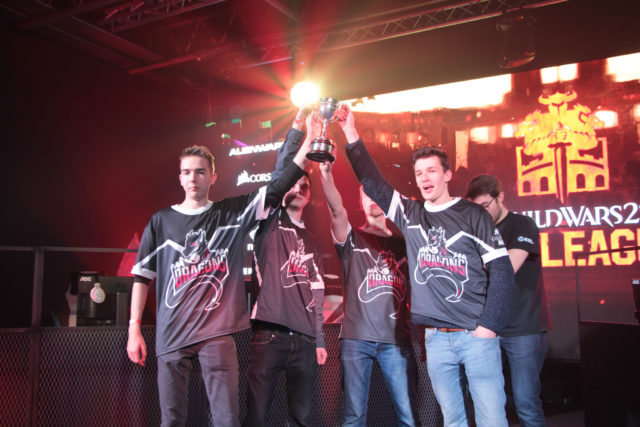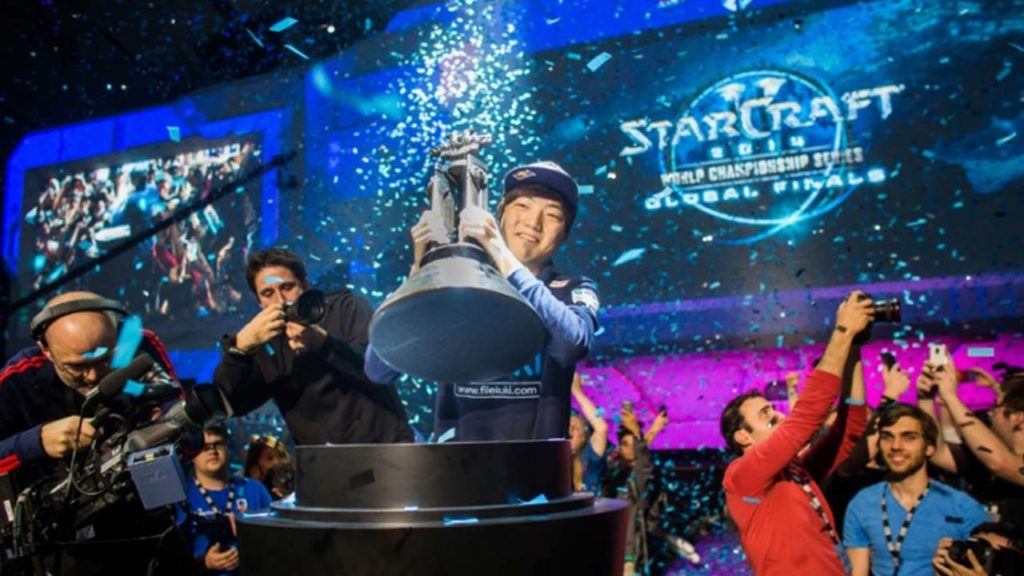When you hear about multimillion dollar prize pools, one might imagine a young video game star driving around in a sports car, living it up in his/her mansion. The truth is, professional eSports players can earn a comfortable living with their gaming skills, but it depends on several factors. Hall-of-Famer Dennis Fong won a Ferrari playing Quake in the ’90s, but fancy cars and a life of luxury are anything but the norm. We know eSports players make money, so where does it all come from?
Sponsorships
A large part of supporting an eSports lifestyle (that is, not having to get a day job), comes from sponsors. SteelSeries, which manufactures competitive video game peripherals such as headphones and mice, sponsors a number of professional teams. According to Travis Hezel (SteelSeries’ global director of sponsorships), the exact details of such a partnership vary according to the players themselves.
“Depending on the account, it can result in varying items,” Hezel told [a]listdaily. “Ultimately, we take the stance that the players need to be taken care of financially, but that also comes with making sure they’re happy utilizing our equipment when competing. Their interests always come first when we’re working with management on negotiating an agreement. A great case would be the guys from Evil Geniuses—the management approached us based on feedback from their Dota 2 Team already using our peripherals.”

Salaries
Salaries vary by team, player and another mitigating factors that are anything but easy to calculate. There is a significant lack of transparency in the world of eSports, which makes it difficult for players to determine what constitutes fair compensation.
“Teams are much more focused on the big picture—namely, that all this growth is actually sustainable,” said eSports attorney, Bryce Blum, writing about the need for transparency. “While there are certainly exceptions, the overwhelming majority of team owners want to compensate their players fairly. But how do we determine what is ‘fair’? In most industries, that can be easily dictated by the market. But the market can be misleading when it is in a state of flux, and nowhere is that more true than for eSports heading into 2016.”
For the League of Legends Championship Series, Riot gives each team a set amount of money to provide salaries and help with operating expenses. According to the 2014 handbook, players must be paid a minimum of $12,500—which, for 28 match season equals around $450 each match. However, many players are compensated much higher. The North American League of Legends team, Ember, became the first organization to publicly reveal player salaries in December.
As part of a statement by Ember CEO Jonathan Pan, the team disclosed how much their new lineup would be banking. At the top of the list is Greyson “Goldenglue” Gilmer who will earn $65,000 in salary with a further $27,000 in performance and signing bonuses. Colin “Solo” Earnest is also clearing $65,000 in salary with $21,000 in added bonuses. Benjamin DeMunck is earning $75,000, Nicolar “GleebGlarbu” Haddad earns $72,500 and $70,000 for Jaun “Contractz” Garcia. Although the exact calculations were not revealed, there is a general understanding in the industry that salaries will be based on factors like reputation, skill and social following. Ember has their players on payroll as employees rather than contractors, and even offers health insurance.

Winnings
In addition to basic compensation, teams and players can earn additional money by the obvious means of winning or placing in competitions. For a five-person team, this could range from $2,000 to $10,000 per player in the playoffs alone. Dota 2 is a wildy-popular title for eSports, and the 2016 Dota 2 International is hosting a whopping $20 million prize pool.
Streaming
Professional video game players hone their skills through grueling practice sessions and create a brand for themselves by nurturing online communities. When they’re not playing in front of millions of viewers, many eSports pros have taken to online streaming as a way to supplement their income. Subscribing to a Twitch stream costs $4.99 a month, with half that money going to the streamer. For top streamers like The Oddone with thousands of subscribers, this can be a huge boon to their income. A streamer with 2,000 subscriptions (at $2.50 in revenue per sub) gets an additional $5,000 a month. League of Legends streamer, Imaqtpie is said to have earned $9,000 in one month. Another way to earn income while streaming is monetizing with ads and taking donations from viewers, and players use the donation feature to raise funds for their favorite charities.
In short, eSports players can earn a LOT, but it depends on their skill, influence over buyers, reputation and willingness to diversify their revenue stream. With the eSports industry reaching $1 billion this year, salaries will no doubt rise over the coming years, and we can all hold on to those dreams of swapping a briefcase for a controller.

